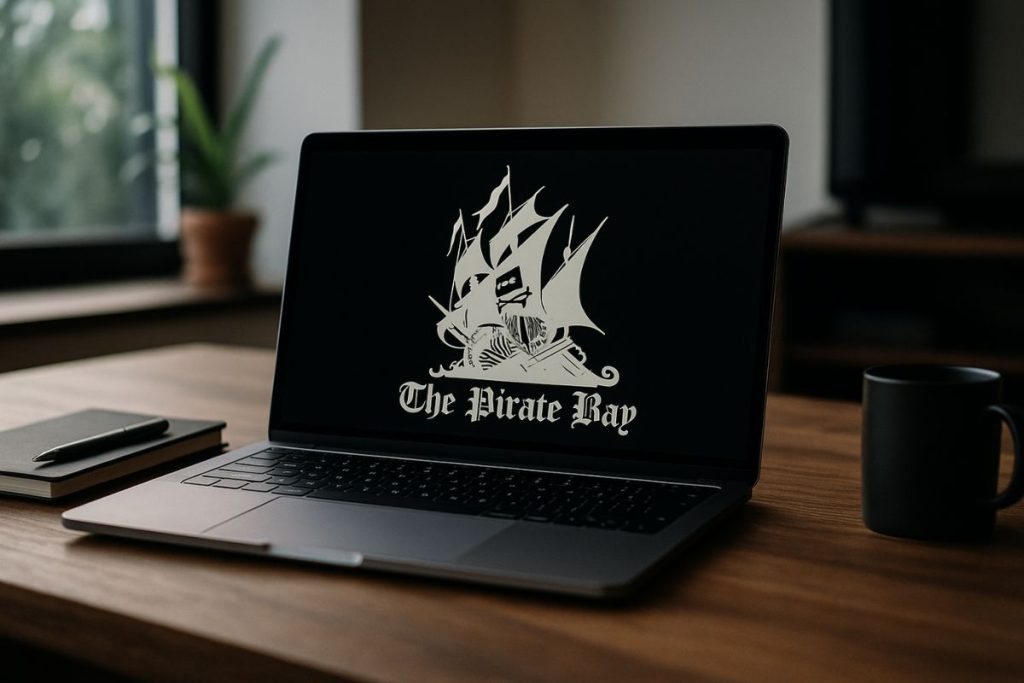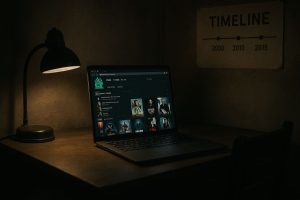How to Keep Pirate Bays Safe

Pirate Bay sites have long been used by people looking to share large files quickly, from movies and music to educational content and independent media. While they remain controversial in some circles, many see them as digital spaces for access, freedom, and expression. Because of this, keeping these platforms safe matters—not just for the users, but also for the communities that rely on them.
With growing concerns about malware, fake links, tracking, and privacy issues, staying protected on these kinds of sites is more than just good practice. It’s necessary for anyone who wants to avoid falling into traps or accidentally compromising their data. People are looking for safer ways to use these platforms without handing over control of their digital identity.
What This Guide Covers
This article breaks down ways to stay safe while using Pirate Bay-style platforms. It includes:
- How to recognize and avoid dangerous files or fake links
- Tools that add layers of privacy and help hide your digital trail
- Tips for using these platforms without risking your system or personal info
- Reasons some users keep returning to Pirate Bay-type sites for open access
These steps don’t require a lot of technical knowledge—just a little awareness and a few smart habits.
Understanding the Risks That Come With Open Sharing
Pirate Bay-style platforms are peer-to-peer networks. This means users share files directly with each other, often without a central company managing the data. That makes the system faster and harder to shut down—but also riskier.
The biggest problems are fake files and malware. A file might be labeled as a movie or a book, but once downloaded, it could be filled with harmful software. Some links even lead users to copycat pages designed to steal personal info. These dangers don’t come from the site itself, but from bad actors hiding among real users.
Another common risk is tracking. Even though these sites are open, your activity may still be monitored by third parties. Without the right protection, your IP address, search history, and downloads can be exposed to outsiders.
Use Trusted Torrent Clients and Avoid Random Popups
To use Pirate Bay files safely, you need a reliable torrent client. This is the software that opens the torrent and connects you to other users sharing the file. Good clients are lightweight, free of ads, and come from well-known developers. Avoid any that ask for too much access or push shady ads.
Fake popups are also a big risk. They may tell you to update your player or click a random button to continue. These should always be avoided. Legitimate files will download through your torrent software, not through random banners or redirect links.
The safest route is to install an ad blocker and disable scripts on unfamiliar sites. This helps prevent accidental clicks that lead to harmful pages or downloads.
Read Comments Before Downloading Anything
One of the best ways to stay safe is also the simplest—read the comments. Users often leave reviews or warnings under each file. They might say whether the file works, if it has viruses, or if it’s fake.
Taking a minute to check these notes can save you from a serious mistake. If a file has no feedback or looks too good to be true, it’s usually best to skip it. Real users are your best defense against fake uploads.
Look for verified uploaders or trusted accounts that have shared working files before. These users often take pride in maintaining a good reputation, which makes their content more reliable.
Use a VPN to Protect Your Identity
A virtual private network, or VPN, helps hide your location and activity from your internet provider or third parties. It’s one of the most recommended tools for people using peer-to-peer sharing services.
A VPN works by creating a private tunnel for your data. Instead of sending information directly from your device to the website, it sends it through a secure server somewhere else. This hides your IP address and encrypts your activity.
Even if you’re not downloading anything illegal, it still makes sense to use a VPN. It’s about privacy, not hiding bad behavior. Many people use VPNs for everyday tasks like streaming or browsing without being tracked.
Keep Your Antivirus and Firewall On
Before opening any file, make sure your antivirus software is running. Even if you trust the file, scanning it first adds a layer of safety. A good antivirus program can catch threats before they infect your system.
Your firewall also helps block suspicious activity. If a file tries to send out data or connect to the internet without your permission, the firewall can stop it. Together, these tools protect your device without getting in the way of normal use.
If your antivirus flags a file, it’s better to delete it right away—even if the comments say it’s safe. No file is worth the risk of losing access to your computer or personal info.
Know the Difference Between Sharing and Stealing
Pirate Bay-type sites are often linked to illegal downloading, but not everything shared there breaks the law. Independent artists, public domain works, and open-source software are sometimes posted by creators who want to reach more people.
That said, sharing copyrighted material without permission is still a legal risk. While this article doesn’t promote illegal behavior, it does encourage awareness. If you’re unsure whether something is okay to download, it’s worth doing a little research first.
Respect for creators matters, even on open platforms. Supporting artists by buying their work when possible helps keep the creative world alive and growing.
Use Simple Browsers With Privacy Settings
Your browser can say a lot about you. From your location to your preferences, websites pick up details every time you load a page. That’s why using a privacy-friendly browser makes a big difference.
Browsers like Firefox or Brave come with built-in settings that block trackers, ads, and fingerprinting. You can also use incognito mode, but keep in mind that it doesn’t hide your IP address or block all tracking.
Adding extensions like HTTPS Everywhere or NoScript can boost your privacy even more. These tools help secure your connection and block dangerous scripts from running without your permission.
Stay Informed and Use Common Sense
The internet changes fast. What worked last year may not work today. That’s why staying informed helps. Read updates from tech forums or communities that care about privacy and security. Learn what tools others are using and share what works for you.
Common sense goes a long way too. If a file looks sketchy, don’t download it. If a site asks for too much info, back out. If something feels off, it probably is. Listening to that little voice in your head often keeps you safer than any software.
Staying careful doesn’t mean being paranoid—it just means being aware. With a few smart habits, you can enjoy the benefits of open file sharing without falling into traps.
Safety Starts With Awareness
Pirate Bay-type platforms can offer access and opportunity, but they also come with risks. If you choose to use them, knowing how to stay safe makes a big difference. Tools like VPNs, antivirus software, and secure browsers help protect you. So do community reviews, smart habits, and a little patience before you click.
In the end, safety comes down to being thoughtful. Each decision—what to download, who to trust, which tools to use—can keep you one step ahead. And that kind of awareness helps not just you, but the entire community stay safer.





